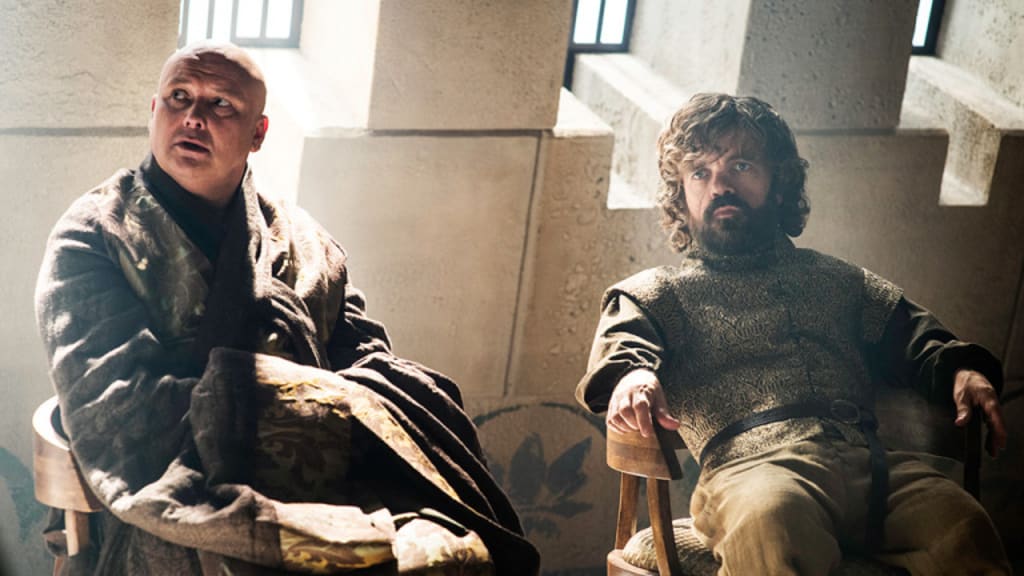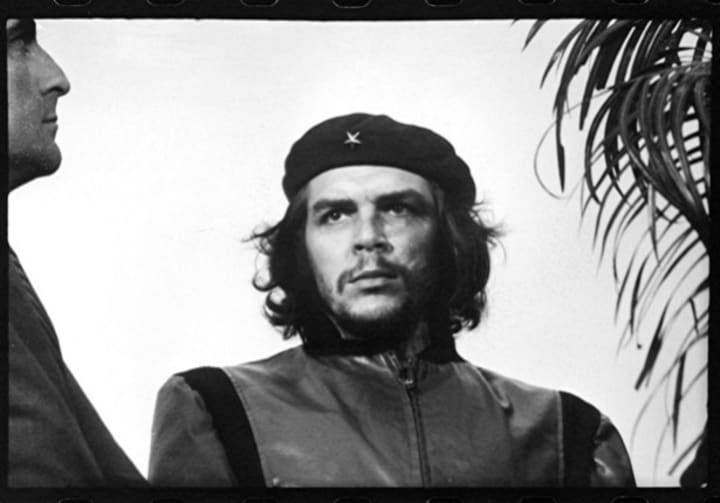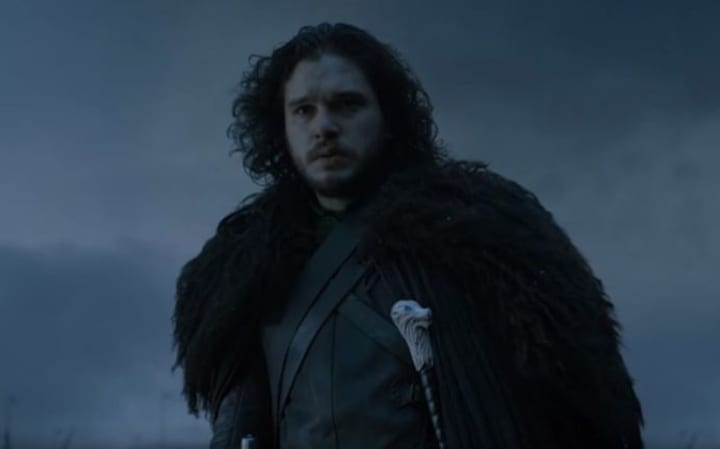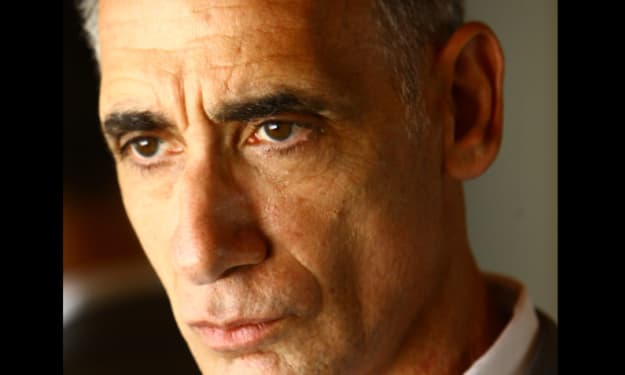Slavery, Class Warfare, and Hegemony
What 'Game of Thrones' teaches us about history.

If you watched Game of Thrones’ episode, “Book of the Stranger” and have some notion of history and politics, you may have noticed a few crazy and familiar things being played out in the lands of Westeros and Essos. Things that author GRRM and showrunners David Benioff and DB Weiss have certainly and purposefully introduced to reflect the history of our own real life non-magical dragon having society. It’s well documented that GRRM was inspired by historical events when he set out to create the conflicts of Westeros, namely England’s 15th century War of the Roses, and that the inspiration of The Wall was found on his trip to Northern England to visit Hadrian’s Wall. Other elements of the ASOIF universe are obvious: Westeros is feudalistic Europe, with the North subbing as the rough, grey highlands of Northern England and / or Scotland / Ireland, the South as a proper and civilized land of bounty (King’s Landing is most reminiscent of a shit stinking medieval London), and then Dorne serving as a the stereotypical Latin hot tempered and lusty Spain (or even Mexico if you like). It’s also no coincidence that the ongoing Dornish feud with the Crown in the books and show resembles Queen Elizabeth I’s constant warring and peacing with Spain early in her reign.
Taken a step further, we can view Pentos, Braavos, and the other Free Cities as renaissance city states like Venice, Genoa, Athens, or even Zanzibar for the more exotic slave trading locales like Volantis. Okay, I might be getting too into this, but think about it: the not so imaginatively named Essos (how Westeros-centric) takes us from west to east, gradually getting more barbaric and tribal as we reach the Dothraki Sea (hello, can you say Orientalism?), and then to the mysteeeerious lands of Assahi, located by the Jade Sea, where we can presume that if the show ever takes us there, we’ll finally have some Asian cast members. Finally, there is another mysteeerious continent to the South called (you guessed it) Sothyros, where a savage dark people reside, where no Westerosi has been able to penetrate the thick jungle, full of strange plagues and large savage peoples, who according to one character in the books seem perfectly suited being slaves. It also happens to be closest continent to the Summer Isles and Naath, where it seems all of the black people in the ASOIF universe come from. So, sigh, guess what Sothyros is.
But problematic social and physical geography aside, both the books and the show have explored facets of this world – where the seasons can last for decades – that do mirror our own normal world, which revolves around the sun in a boring 365 days or so. Facets like the rise and fall of monarchies, the changing modes of production and the socio-political order of civilizations with respect to class, gender and race, and as well the politics of conquering and dominating people. While this has been going on all along in both the show and the books, last week’s episode takes them on all in one hour, and provides us with some interesting political fodder to think about when we are not staring at Danaerys’ naked breasts or watching someone get dismembered, burned, or raped.
Now, I’m a student of history. And by that I don’t mean that I go on Wikipedia and watch a lot of period dramas, I mean I actually studied history in university, more specifically Middle Eastern history, but also the histories of European working classes, imperialism and slavery, and yes a few courses on American history, as well. I also go on Wikipedia a lot and watch period dramas. So when Tyrion says, “There have always been those with wealth and power, and those with nothing. That is the way of the world,” to a room of slavers, a dickless plotter, and a couple of ex-slaves, well, you don’t need to be a history student to know that that’s true. But then he goes on to say something else that I did come across in my studies: “You don’t need slaves to make money. There haven’t been slaves in Westeros for hundreds of years, and I grew up richer than all of you.” And here’s where our history comes into play: of all of the great imperialist European nations, Britain was the first to abolish slavery across its empire (first the trade, and then later the practice altogether, and there was no chattel slavery in England at all after the 12th century). At the time, Britain used abolition as propaganda to shame its imperialist rivals Spain, France, and Portugal, and to emphasize the free and benevolent nature of its dominion. But there was most certainly something else going on, and Tyrion hit the nail on the head as he treated with the Wise Masters of Slavers Bay.
Slavery was done. Outmoded. Increasingly unprofitable. The times they were a changin’, and Britian was the first to grasp that a new form of production was coming, one that would outweigh slavery in terms of productivity and profit for the well to do’s: industrialization and wage labour. Of course there were those who were slow to grasp this change, much like the Wise Masters. America would have to fight a civil war to do away with it, and Brazil would not abolish it until twenty years after America did. And there are still those who like to think that Abraham Lincoln was all compassion and humanity when he ‘freed the slaves,’ but truth be told he knew that slavery was a dying institute, though that didn’t stop him from first considering a Tyrionesque compromise with the South to slowly phase it out, before the South just preemptively went to war with him instead.
So by the end of the 19th century, while the mostly black slaves across the colonized world were rejoicing in their freedom and trying to find jobs after a centuries of struggle and suffering, a new form of exploitation faced them as they threw off their fetters to join the world of a collective working class. This wage labour based society would keep Tha Man rich, and new opponents to it began to publish books and organize a movement that would call upon the working people to abolish the ruling classes altogether.
Here’s where Game of Thrones is slightly off, speaking to historical chronology and modes of production. Westeros has a feudal mode of production, with high lords in big castles who own land that are worked by peasants (‘smallfolk’) who pay their taxes to the lord and fight in his armies and turn over a portion of their harvests and are in turn allowed to reside upon the land and receive their lord’s protection. Yes, Ned Stark was one of these noble paternalist assholes. Essos has a mix of mercantile and slavery based mode of production, where slavers and merchants collect the coin and rule the politics. There is no wage labour yet in the ASOIF universe. There isn’t even a real bourgoisie class, there’s just nobles, the clergy, and peasants (smallfolk), with a few knights, artisan shoemakers and smiths and merchants sprinkled in (the future bourgeoise, and they like their orgies apparently). So when the High Sparrow (clergy) comes along and proclaims the ruling classes as corrupt and decadent (duh) and calling for the masses to rise in revolution and end the excess of the nobles and institute pious equality for all, his movement is not a Marxist one. Marx for one hated religion, and correctly recognized it as a tool to placate the masses into accepting their lot. Secondly, Marx stipulated that for a true class war to come to fruition, a given society must be in the full swings of industrialization with a waged factory-manufacturing based society controlled by a bourgeoisie. Two distinct classes. Workers and capitalists. Anyone see any factories or steam engines in Westeros yet? Children losing their limbs in big cogs and presses?
Nevertheless, the High Sparrow’s movement is an important one. For every once in a while, the peasants and the poor of a given city would rise up in medieval and post medieval Europe, and it was up to the nobility to do something about it by providing more bread, easing taxes, or giving them more alcohol and prostitutes, or a royal wedding to distract them. Here, however, the Church has gone awry from Cersei, and the High Sparrow has come to lead a weird hybrid of a normal Ted Cruz’s religious zealotry and an evil Bernie Sanders’s war on the rich. Throw in some ol’ fashioned fundamentalist women hating and sex shaming, and he looks even more Cruz like, veering toward ISIS.

Which brings us back across the narrow sea to a new, modern empire that is forming, one that is simultaneously freeing slaves while subjugating people of colour under an elite white leadership. It stands for freedom while it takes down city by city, expanding its dominion like some sort of manifest, uh, something. Sound familiar? Hint: it has drones that reign death from above on said people of colour, and it promises to eclipse Westeros and install a new world order with its military might. Danaerys does not want to change to mode of production in Westeros and Essos though, she only wants to improve them (she won’t be breaking any wheels once she comes into power, I fear). Her Secretary of State, Tyrion Lannister, is already doing away with slavery as mentioned above, and her great generals and diplomats stand ready to help her take on the rest of the world and bring it to heel. When she’s not convincing her worshipers that she has liberated them from their lives of domination and servitude, she’s outright conquering them and adding them to her allies. Her power is awesome. Her empire is growing. Fuck yeah. Still though, with all her might, power, and talk of freedom, she has enemies from within and without. There have always been those with wealth and power, and those with nothing. And that is the way of the world. But one has to wonder that when she finally does come to power and rule the world, how long will it be before the folks who want to be free see her for what she really is, and the refuse to bend the knee?
And then maybe Jon Snow can lead the real revolution. Feel the frostbite!


About the Creator
Nicolas Brown
Teacher of the English language, traveler. Movie, comedy, and TV hound. Wheelchair user and occasionally fun to be around.






Comments
There are no comments for this story
Be the first to respond and start the conversation.